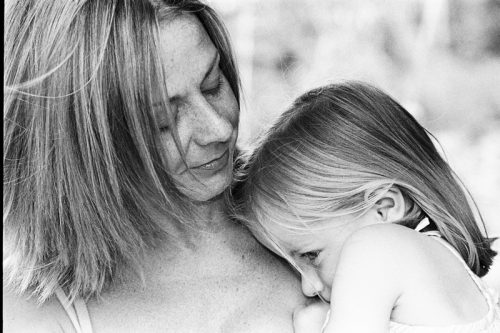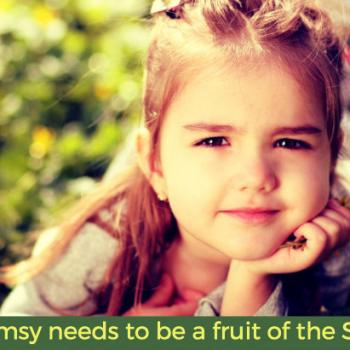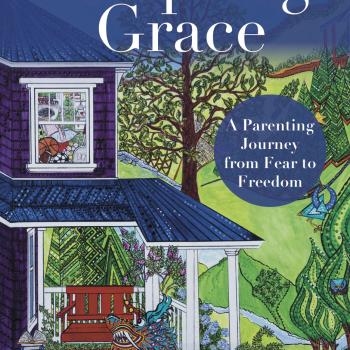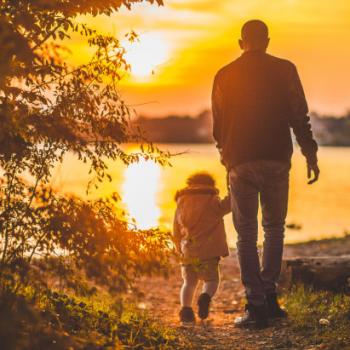
Photo Credit: Dan Cottle – creative commons licence
It is easy enough to dismiss a child’s fears about monsters under the bed, but what about when the monsters are real, and hold guns?
The Orlando shooting; hate crimes; the constant backdrop of Isil beheadings; political unrest – we wish they didn’t happen, but they do. I live in the UK, and the EU Referendum has just delivered a seismic shock to Britain’s politics and economy. Everyone is talking about it – even our kids.
We want to protect our children from fear, but their fear is justified. We know this, because we feel it, too.
So how do we as Christians respond to our children’s fears? This is the question I faced as my young son told me about some of his fears. I was torn – it’s good for children to grow up protected and secure, but I also want to be honest about the world, and for my son to care about justice.
It would be easy to say, “Don’t worry, God will protect us,” but bad things still happen to Christians. I don’t want to fall into a false prosperity gospel. Neither do I want to say, ‘Don’t worry, when bad things happen, God is extra close to us,” because it doesn’t always feel that way.
What’s the solution?
I asked a few friends and the Unfundamentalist Parenting Facebook community, and was blown away by the wisdom I received. Here are their top tips:
1. Accept anxiety as a healthy emotion
“There are behavioral modification techniques for managing anxiety but, for the most part, anxiety is part of being human and can’t be entirely avoided. It actually serves the useful purpose of helping us stay safe and prudent – without it we would take dangerous risks all the time.” – Bekah Ferguson
“When my child is scared, I ask if they want to try something to feel better, or if they want to sit with the anxiety for a bit. I don’t want to communicate the message that being scared or anxious is bad, so we talk about how it’s just a feeling, and we ride through the anxiety and fear the same way you would ride a boogie board on waves.” – Anonymous
2. Use imagination and creativity
“Have you watched the movie, “Life is Beautiful” about a Dad who protected his son from the horrors of the concentration camp? An extreme example, but inspires me to protect kids from the terrible news of the world while using imagination, humor, and some grit to strive for hope together as a family.” – Cindy Brandt
“Madeleine L’Engle talks about her childhood, growing up an anxious only child whose parents who did not shield her from the fact that she lived in a century of war (which she was grateful for). She found solace in books, writing and searching out the beautiful. That has always stuck with me.” DL Mayfield, author of Assimilate or Go Home
3. Look for the good
“I try to temper the bad I share with more good. So after my child heard about Orlando, we chatted about all kinds of things people were doing to help.” – Anonymous
“We tend to be realistic about outcomes, talking through the statistics and realities, but on a day-to-day level we focus a lot on all the small goodnesses of each moment. We hope to underpin all the big fears with a sense that there is still wonderful stuff around.” – Blogger at Faith Hope and Reality
My friend, a therapist, said this:
“I am not a parent so I’m not giving parenting advice. But what I say to the child within me who is scared, is that though bad stuff is real and bad stuff does happen and will always happen, there is also good. There are good people, who weep over things that need grieving and who stitch up and comfort those who’ve been broken. People do still get broken…but that’s never the whole story.”
And I’m grateful to Elizabeth Hinnant for introducing me to your illustrious Mr Rogers: “Look for the helpers”:
4. A toolbox of coping strategies
“We do lots of different things, like finding something fun to do or singing along to music, or we look up statistics or talk about best case and worst case scenario and what we would do in each.” – Anon
“If my kid’s mind is wandering in pessimistic and depressing thoughts, I direct their thoughts to things they CAN control – being nice to siblings and friends, which toy to play with next, which book to read, etc. Sometimes anxiety can be fueled by a sense of perfectionism and control, so if you describe things that don’t need to be perfect and what your kid can influence, it may calm them.” – Anon
“One trick is to have kids blow bubbles. It makes them slow their breathing down. I learned it in a child psych class and laughed. When I was little my grandma told me angels and fairies rode on the bubbles and took my prayers to God. She didn’t know why it worked, but knew it helped anxious, stressed kids calm down” a friend’s Grandma Gracie
5. Above all – Love, Love, Love
“Strong attachment relationships can help reduce anxiety. If a child feels loved by his caregivers and closest circle, he can rest in that love. If he feels insecure, everything potentially becomes a threat. So *sometimes* the best way to address anxiety is indirectly: focus more on continuing to nurture the attachment relationship, and reduced anxiety might be a happy byproduct.” Author Bekah Ferguson
“Sometimes all you can do is give hugs and say, ‘whatever happens we will always love each other.’” Blogger at Faith Hope and Reality
This advice holds good for normal childhood fears.
But what about a full-blown anxiety disorder? You’ll need a different approach:
6. For anxiety disorders – avoid reassurance, seek therapy
“Tamar Chansky’s book is great – I was shocked to learn that reassurance is one of the worst things we can do with an anxious kid. Instead, look at evidence-based therapy, which can give them an arsenal of mindfulness-based and cognitive techniques.” – Anonymous
“For an actual anxiety disorder, the child will probably need therapy to break the cycle of anxiety and reassurance-seeking – reassurance can become an addiction that feeds the cycle.” Bekah Ferguson
***
Photo Credit: Emma Freeman (Creative commons)
As I reviewed the responses, I realised they hadn’t given me the answers I’d sought. Just like my son, who wants to know bad things will never happen to him, I’d wanted to guarantee my child would never be afraid. Like my child, I had sought guarantees and neat theological solutions; instead I received comfort and practical wisdom.
Ironically, I was anxious about my child’s anxiety.
They gave me not the answers I wanted, but the answers I needed.
In short, they’d said this: you can’t solve your kid’s fears by explaining them away, but you can give love and coping strategies. You cannot guarantee no bad thing will happen to your child.
God is good, but bad things happen. This is a mystery that theologians still stumble over. Life is hard, but beautiful. I can’t make these pieces of the jigsaw fit together neatly, any more than I can prevent my child from ever feeling fearful.
But I’m acknowledging my fear, holding the mystery, and, via the wisdom of friends, finding a strange comfort in snuggling up to God.
 Tanya Marlow blogs at Thorns and Gold, where she writes honestly about the Bible, suffering and the messy edges of life. She’s a contributor to Soul Bare, stories of authenticity and vulnerability (IVP USA, 2016). At present, she’s working on a book which follows four Bible characters through the themes of waiting and doubt. She is the author of Coming Back to God When You Feel Empty, which you can get for FREE here.
Tanya Marlow blogs at Thorns and Gold, where she writes honestly about the Bible, suffering and the messy edges of life. She’s a contributor to Soul Bare, stories of authenticity and vulnerability (IVP USA, 2016). At present, she’s working on a book which follows four Bible characters through the themes of waiting and doubt. She is the author of Coming Back to God When You Feel Empty, which you can get for FREE here.
Over to you:
How do you deal with your child’s anxiety – and your own? What theological insights and practical wisdom helps you?
Resources: (via Kay Bruner)
- Book: Tamar Chansky – Freeing Your Child from Anxiety
- Book: Peter Levine and Maggie Kline – Trauma-Proofing Your Kids
- Online animations that teach techniques for kids dealing with anxiety – Go Zen
- Interactive app and game to combat panic attacks and high levels of anxiety – Flowy Game
NB This is collective lay-person wisdom, and should not be viewed as an alternative for medical advice. Amazon affiliate links are included.
Tweetables:
“Life is hard, but beautiful.” – @Tanya_Marlow. 6 top tips for responding to your child’s fears:
“You can’t solve your kid’s fears by explaining them away” – @Tanya_Marlow
“Orlando, hate crimes, political unrest – how do we as Christians respond to our children’s fears?” – @Tanya_Marlow
“Ironically, I was anxious about my child’s anxiety.” – @Tanya_Marlow
“I wanted to know my child would never be afraid” – @Tanya_Marlow
“You can dismiss a child’s fears about monsters under the bed, but what about when the monsters are real, and hold guns?”
“God is good, but bad things happen.” 6 top tips for responding to your child’s fears: – @Tanya_Marlow
“You cannot guarantee no bad thing will happen to your child.” – @Tanya_Marlow














